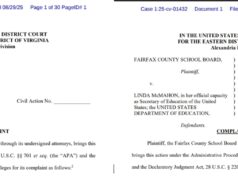When I wrote the piece “For the First Time, I’m Wondering About Bob Mueller” on Monday, it was before I’d heard former AG Eric Holder explain what Mueller was likely intending (i.e. for his evidence to be transmitted to Congress) and articulate his critique of Barr’s taking it upon himself to pass judgment about whether Trump was guilty of obstruction of justice. (It was only as an update — with a NOTE and a comment — that I included that important information.)
With the benefit of that information, and with the audience of my very red district in mind, I composed the following piece — on the subject of the Mueller Report and the Trumpists’ claim of exoneration — for my weekly op/ed.
(I would have gone into my concerns about the lack of any charges concerning conspiracy with the Russians, but the word-count limits prevented that.)
*********************************
People on the Right apparently believe the Mueller Report is a vindication for their side. I can see why they’d think that. But I see it differently.
At least for the moment, it does seem like a victory of sorts for Mr. Trump, in that many (including me) expected that the submission of the Mueller Report would deliver an immediate blow to the President, and it has not.
But even now, it is pretty clear that Mr. Trump’s “COMPLETE EXONERATION” claim is just another example of his tendency to lie – for even Attorney General Barr’s Trump-serving letter says explicitly that the Mueller Report “does not exonerate” Trump. But more than that, it is beginning to look like something fishy is going on with both of the major questions the investigation dealt with.
This is particularly true with respect to the obstruction of justice issue.
Mr. Barr tells us that Special Prosecutor Mueller left the obstruction issue “unresolved.” Barr also declared that, “The Special Counsel’s decision to describe the facts of his obstruction investigation without reaching any legal conclusions leaves it to the Attorney General to determine whether the conduct described in the report constitutes a crime.”
Then the Attorney General, accepting the assignment he claims Mueller handed off to him, tells the Congress that he has “concluded that the evidence developed during the Special Counsel’s investigation is not sufficient to establish that the President committed an obstruction-of-justice offense.”
That sounds like the “exoneration” the President’s people are trumpeting. But instead, it appears to point to one more scandal.
Former Attorney General Eric Holder has pointed out that Mueller’s refraining from drawing a conclusion about an “obstruction” charge conforms to the established pattern for Special Prosecutors investigating a President.
Both Leon Jaworski, who investigated Nixon, and Kenneth Starr, who investigated Clinton, refrained from drawing conclusions on presidential obstruction, taking it as their job to lay out the evidence regarding obstruction and leave to Congress the job of drawing such conclusions. It is Congress, after all – not prosecutors, who are barred by DOJ policy from indicting a sitting President — who have the constitutional responsibility judge possible presidential wrong-doing.
It is therefore a break with precedent for Mr. Barr to take it upon himself to make that determination – “the evidence … is not sufficient” – rather than to pass it along to Congress.
Moreover, former AG Holder – who knows Mueller well, having been Mueller’s superior when Mueller was the Director of the FBI – says that the idea that Mueller would “leave it to the Attorney General” to make such a decision is altogether contrary to how Mueller would proceed. He’d never shrink from making that call himself, except out of respect for the proper role of Congress.
It would appear, therefore, that Mueller was trying to do what previous such Special Prosecutors have done – i.e. to hand the evidence and the decision off to the Congress – and that AG Barr has, in effect, intercepted that hand-off, blocking the intended and appropriate role of Congress.
At least for the moment – we’ll see whether Barr stonewalls Congress or freely gives the legislative branch what it needs to fulfill its constitutional responsibilities — it appears that Barr has chosen to play an inappropriate role to publicize a judgment that is not his to make and that takes the President who appointed him to office off the hook.
Such inappropriate “vindication” would be fishy under any circumstances. But the fishiness is greatly magnified by what we know about how it is that Trump got Barr for his Attorney General.
Trump is the President who publicly attacked his first Attorney General for many months, before ultimately firing him: all because that AG recused himself from overseeing the Russia investigation as required by Justice Department rules. In other words, Trump created the opening because he wanted an Attorney General who would protect him rather than the rule of law.
Meanwhile, William Barr seemed implicitly to be applying for the AG job when – unsolicited – he sent the Trump administration a long letter 1) attacking the Mueller investigation and 2) putting forward some extreme ideas that seemed to place the President above the law.
So now, when that Attorney General appropriates to himself the right to declare to the nation that the evidence does not support a charge of obstruction of justice against the President who picked him for self-protective purposes, that’s hardly a credible exoneration. Instead, it arouses the suspicion that we are witnessing yet another scandal.
Much of that suspicion, it should be said, can readily be dissipated by Attorney General Barr’s speedily releasing to the Congress – and to the American people – the Mueller Report itself, complete (but for anything that must be kept classified for national security reasons).














